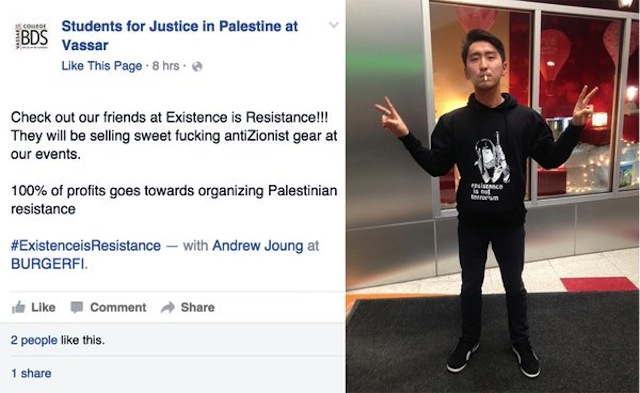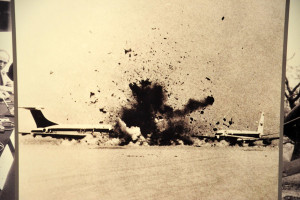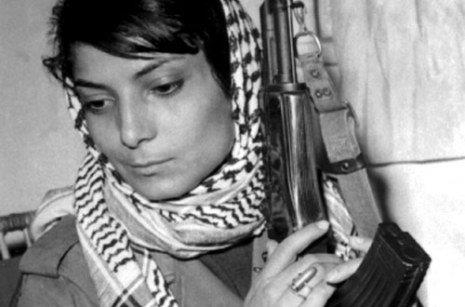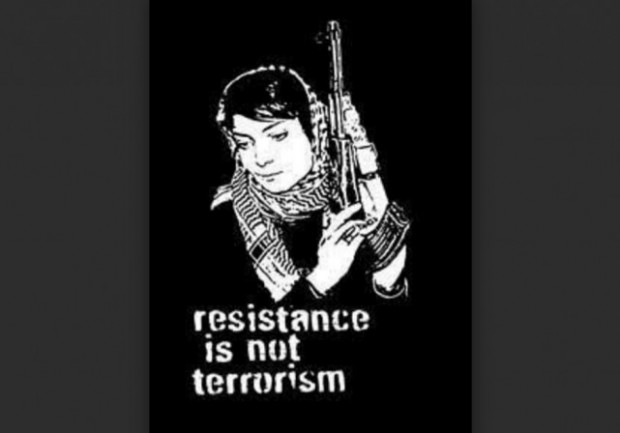The word resistance is defined as the ‘refusal to accept or comply with something.’
A legal definition of the word is “the opposition of force to force,” which can either be “lawful or unlawful.” Resistance can be associated with defiance, independence, and strength in times of struggle. However, resistance also indicates rebellion, and is frequently used by those who sympathize with Palestinian terrorists to sugarcoat attacks against innocent civilians.
Students for Justice in Palestine (SJP)’s hashtag #ExistenceisResistance could be a fine concept. Through solidarity with Palestinians, through protests, through dialogue and advocacy—through the mere existence and reassurance provided by a pro-Palestinian group—pro-Palestinian activists could strengthen the Palestinian resistance to any sense of being downtrodden and could reinforce Palestinian defiance to hardships.
With SJP, any sentiment of non-violence with the use of their hashtag “#ExistenceisResistance” is hard to come by.

SJP’s decision to write “#ExistenceisRestistance” in a post alongside a t-shirt with an image of Leila Khaled suggests they are defining resistance for themselves in a very unlawful sense of the word, despite the t-shirt’s wording that “resistance is not terrorism.”
In order to fully understand SJP’s horrific act of printing Leila Khaled’s face on their t-shirts and glorifying her, you must know who she is:
Leila Khaled was born in Haifa, Israel to Palestinian parents in 1944. At the age of 15, she became part of the Arab Nationalist Movement, which would later develop into the Popular Front for the Liberation of Palestine (PLFP).
With time, Leila Khaled grew more dedicated to her people and more passionate about implementing terrorism as a means of Palestinian ‘resistance.’
On this very day in 1969, on August 29th, Khaled took part in the plane hijacking of TWA Flight 840. Israeli Prime Minister Yitzhak Rabin, known for his arduous efforts to make peace with the Arabs, was said to be on this particular flight. Khaled and a few other terrorists took over the plane and to their dismay, Rabin never showed up. This PLFP hijacking mission to attack Rabin failed, but they still did damage, blowing up a section of the plane.

A picture of terrorist Leila Khaled wearing a kaffiyeh and holding a gun, was publicized following the hijacking.

Following this failed attack, Khaled went through many plastic surgeries so that she would not be identified in the future as the TWA Flight 840 hijacker and could continue her terrorism work, in peace. With an unidentifiable face, Khaled went on to participate in other hijackings.
While Khaled tried to strategically distance herself from this photo, SJP decided to print this photo on their own t-shirts, juxtaposing this photo of the kaffiyeh-adorned hijacker with their disturbing hashtag, “#ExistenceisResistance.”
With the definition of resistance in mind, it is clear that Leila Khaled does not represent “the refusal to accept or comply with something” in any lawful sense of the word. The resistance represented by Leila Khaled is only a refusal to partake in dialogue, to pursue justice, to follow laws, or to strive for peace. Her resistance is not an indication of strength or defiance but rather, radicalism and violence in the form of terror.
What exact message is SJP trying to convey with this t-shirt? That unlawful “resistance” and terrorism are key to Palestinian existence?
The t-shirt shows us that the kind of “justice in Palestine” that Students for Justice in Palestine aspires to is indeed violence.
Justice, as a legal term, is not said to have any association with terrorism. Justice is “the proper administration of the law; the fair and equitable treatment of all individuals under the law.”
Terrorism, on the other hand, is defined as “the unlawful use or force of violence against persons or property in order to coerce or intimidate.”
By definition terrorism and justice do not go hand in hand and are quite the opposite of one another. That said, it seems that SJP needs to either remove “justice” from their name, or they ought to discontinue their associations with terrorists such as Leila Khaled.
Regarding their concept of “resistance,” Students for Justice in Palestine needs to fully acknowledge the events of this day in history. The TWA Flight 840 hijacking is an example of “resistance” fighters taking “justice” into her own hands by terrorizing innocent people.

Any claim that “resistance is not terrorism” with relation to Leila Khaled or the August 29th hijacking is factually incorrect. While SJP can be a “resistance” group if they like, Leila Khaled is not an example of non-violent resistance.
SJP needs to reconsider how figures like Leila Khaled represent their values. While SJP is not recognized as a terrorist group, it is already a “resistance” group in the negative sense. Rather than partaking in dialogue, they focus on demonizing Israel, and their interactions with Zionist students are very antagonistic and unproductive.
While ceasing to glorify terrorist Leila Khaled is a great start, perhaps SJP should also reconsider how to be a more actively positive “resistance” group in the future. For example, SJP can stop “resistance” work against Israel, a place where Palestinians who chose to have Israeli citizenship are employed, live freely, and vote.
In short, SJP should take note of the fact that many Palestinians prefer to live in an Israeli country rather than a Palestinian-run country. The BDS movement against Israel, for example, only serves to hurt the Palestinian standard of living.
Instead of focusing on resistance to Israel, SJP could focus on critical issues, such as terrorist groups which steal aid funds from Gazans or the ongoing crisis in Syria. If sticking to the idea that “resistance is not terrorism,” Students for Justice in Palestine must refocus its efforts to truly implement the concept. In turn, Palestinians might actually be helped by this fiery student movement.
Contributed by CAMERA Intern Penina Simkovitz.

